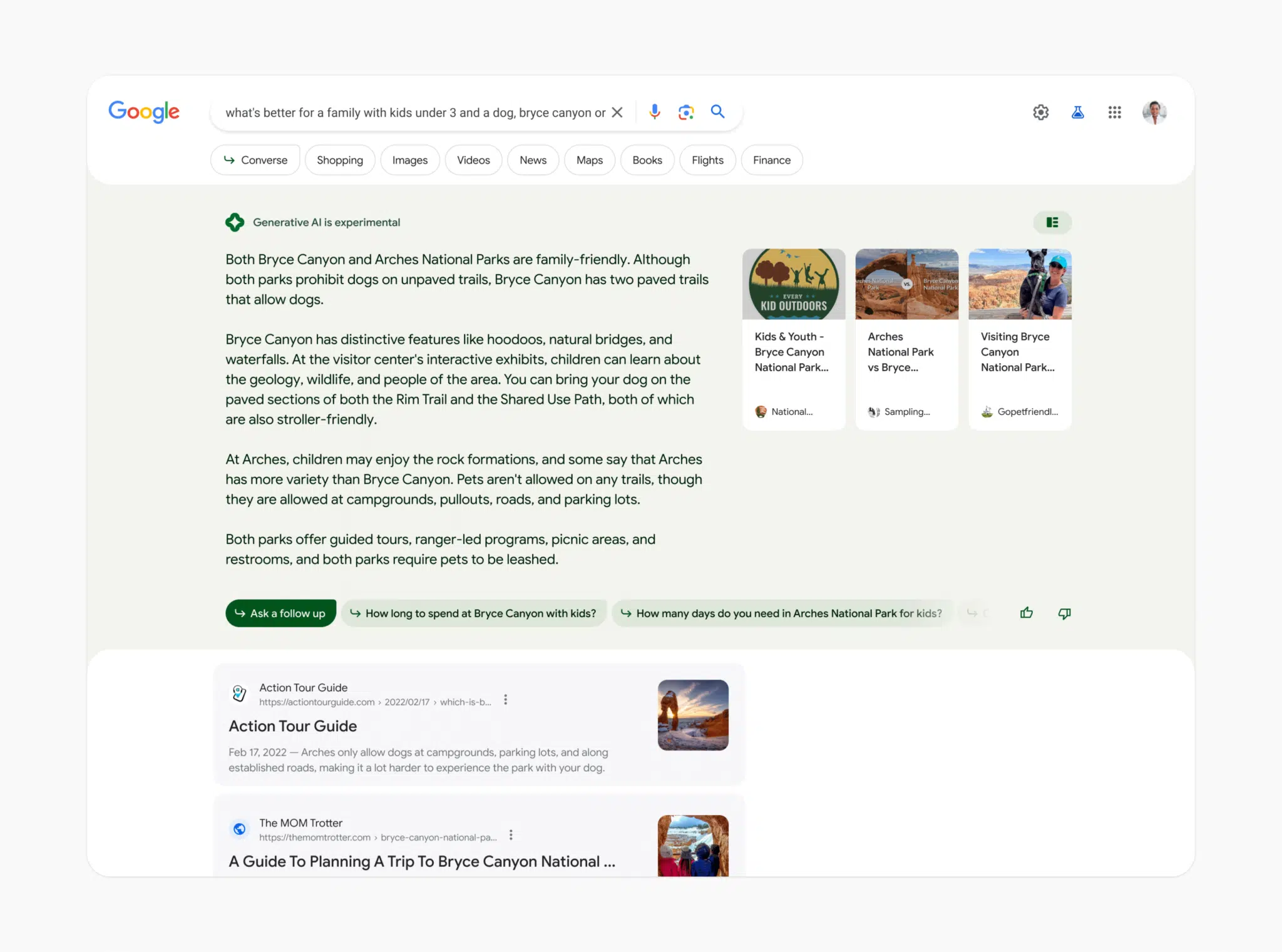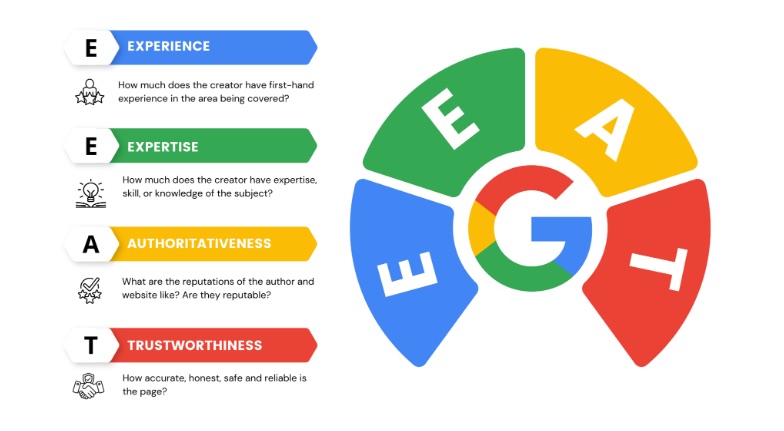A New Way to Search: Google’s Generative AI
In the ever-evolving world of SEO, AI has already played a pivotal role in transforming various aspects of how we search.
Google in particular have been at the forefront of utilising AI to enhance user experiences, improve search quality, and support the discovery of relevant information.
And now it’s about to reach the next level using, you guessed it, AI advancements again.
In short: Google are now introducing cutting-edge generative AI technology to enhance the search experience. And I’m liking it!
I will stand up and pay attention to anyone who appears to be taking their time and using a considered approach to AI advancements. Much of it has been far too rushed.
We all know that Google jumped the gun a bit and were too exposed by factual errors, but I think the lesson has been learned.
Over the years, Google has introduced ground-breaking advancements such as the Bidirectional Encoder Representations from Transformers (BERT) and the Multitask Unified Model (MUM) to revolutionise search capabilities.
I won’t delve too much into BERT or MUM right now, all you need to know is that they paved the way.
Continuing this trajectory, Google is now venturing into a new frontier called Search Generative Experience (SGE), where generative AI takes centre stage.
Generative AI is a type of AI capable of creating new content, such as images, videos, music, or text, that is not directly copied from existing examples.
It’s a fascinating area with so many functionalities, responsible implementation questions being raised, known limitations and more…
What is SGE?
Search Generative Experience represents an early step in transforming the search experience using generative AI.
It presents an AI-generated response above the search results. Google explicitly indicates the answer as being from Generative AI, followed by a response to your query.
The answer is presented in a box and Google provides citations to the websites used for generating the answer. These citations can be clicked to explore further.
Alternatively, you can ask another question or use the toggle button at the top right for more in-depth information.
 With SGE, users will notice a revamped search results page that organises familiar web results in a novel manner, enabling you to extract more value from a single search.
With SGE, users will notice a revamped search results page that organises familiar web results in a novel manner, enabling you to extract more value from a single search.
It empowers users to ask entirely new types of questions, gain quick overviews of topics with relevant links for further exploration, engage in a natural conversational mode for follow-up queries, and effortlessly accomplish tasks like generating creative ideas or drafting content directly within the search interface.
So far, it looks pretty f*cking cool.
How SGE Works
At the core of SGE are AI-powered snapshots that provide users with a synthesised overview of a topic.
These snapshots offer factors to consider and relevant insights, serving as a jumping-off point for users to explore a wide range of content and perspectives on the web.
SGE also incorporates a conversational mode, allowing users to naturally ask follow-up questions and obtain additional links to resources for in-depth exploration.
Leveraging AI, the conversational mode adapts to the context of the user’s queries, reformulating and refining the search intent over the course of the conversation.
This dynamic approach ensures users have access to the most relevant content as the conversation progresses.
Vertical Experiences
SGE extends its benefits to verticals such as shopping and local searches.
In shopping, SGE aids users in making informed purchase decisions by uncovering insights, presenting notable factors to consider, and offering a range of product options with descriptions, reviews, ratings, prices, and images sourced from Google’s comprehensive Shopping Graph dataset.
Similarly, SGE enhances local search experiences by providing AI-powered insights that facilitate comparisons and exploration of options.
What About The Ads?
This is an important one, and make no mistake, search ads will continue to play a vital role within SGE. They will appear in dedicated slots throughout the page.
Advertisers can leverage SGE to reach potential customers at various stages of their search journeys, just as they have done already.
On the ethical front, Google says they remain committed to transparency by ensuring clear differentiation between ads and organic search results, utilising the usual labels. I’m sure the dark patterns will continue here, but let’s see.
Embracing Creativity
Generative AI capabilities in SGE unlock new possibilities for users to engage with information creatively. Beyond merely finding information, SGE supports users in utilising that information in innovative ways.
Whether it’s searching for a new product or brainstorming ideas for social media posts, SGE’s creative potential offers users an enhanced and immersive search experience.
It’s important to note that, initially, SGE imposes certain constraints on creative applications to prioritise safety and quality. However, as the system evolves and quality improves, creative capabilities will expand.
SEO
Whatever content SGE surfaces will still use citations and will link to content where needed, so this does not necessarily mean that we are facing a world of zero-click searches. There will be more of them, but this is not the death of your SEO traffic.
On the flip side, it will look for content that is trustworthy so all of the same E-E-A-T principles will apply if you want your content to be surfaced here.

Applying It Responsibly
As an experimental feature, Google says they are approaching SGE thoughtfully and responsibly, in accordance with its AI Principles.
Many will like to hear this since there is currently an overreaction in which people think this will destroy the world.
So there you have it…
SGE brings cutting-edge generative AI technology to enhance the search experience, and this is certainly welcome.
It offers a distinctive new search experience, distinguishing itself from previous versions while retaining the familiar Google search essence.
Notably, Google has made improvements in linking to publishers, aiming to actually generate website traffic.
It’s pretty exciting, to be fair.
If you want to know more about what all of this means for your SEO strategy, then get in touch with us today.


